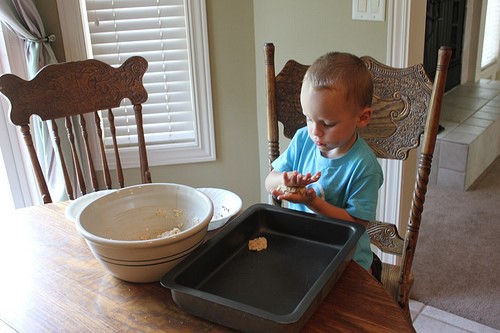How to instill strong work ethic in children from a young age
Keeper of the Home

Written by Crystal Paine, Contributing Writer Updated February 15, 2019
My parents wanted their children to leave home with three things: a deep love for God, integrity, and a strong work ethic.
They were so motivated to teach us the value of hard work that they set a goal to move out to the country by the time we were in our early teens.
With much prayer and effort, their goal was realized. And boy did we learn how to work! I have fond and not-so-fond members of lots of back-breaking work: gardening for hours on end, dragging hoses all over the acreage to water the new trees we had planted, and spending much of the day on Friday taking care of the seven acres of the land that were planted in grass.
Truth be told, I wasn’t always so thrilled at all the work they expected us to do. Sweating in the heat and developing sore muscles on a regular basis weren’t necessarily what I’d consider fun. But looking back, I’m so thankful for the character I developed through all those hours of laboring in the hot Kansas sun.
The lessons in diligence and perseverance have been invaluable to me as a wife, mom, and business owner today. Truly, I believe one of the greatest gifts my parents gave me was instilling in me a strong work ethic from an early age. We want to do the same for our children and we’re seeking to do this in the following five ways:
1) MODEL HARD WORK BEFORE THEM
As has well been said, when it comes to raising children, “More is caught than taught”. We can’t expect our children to work hard if they don’t see us working hard.
How about a lifestyle farm at St David Springs as the ideal family learning environment? Have the young ones work alongside or you and make learning work ethic fun
I’m working on making it a habit to keep my room and bathroom clean because it seems rather hypocritical for me to expect something of my children that I don’t do well myself!

2) REMEMBER THAT IT WILL REQUIRE MORE EFFORT UPFRONT
When teaching young children to work, it typically takes a lot of practice before they get it. Show them how to do a chore a few times. Then, work alongside them and help them do the chore. Finally, once you’re really sure they’ve gotten it, let them do it on their own — and then be sure to inspect their work.
This takes patience and perseverance, but I promise it will pay off! I remember when I first started teaching my then 2-year-old and 4-year-old to clean the bathroom. It seemed like an exercise in futility at first, with no one really picking up on what I was wanting them to do.
But I kept at it week by week, and within a few months, they were working more independently. Nowadays, I just have to get the cleaning supplies down from the closet and they can pretty much do a great job on the bathroom all by themselves!
3) GIVE AGE-APPROPRIATE CHORES
The last thing you want to do is frustrate your children by giving them chores that are too difficult for them! Start your children out with one or two simple chores and then gradually add more as they catch on and improve.
Remember, though, that each child is different. What might be simple for one 4-year-old, could be utterly overwhelming to another. So, keep your own child’s abilities in mind when assigning chores and don’t feel frustrated if they struggle to do what another child their age can easily pull off.
4) MAKE WORK FUN
Young children typically love to work — especially if you make it fun! We have some special chore time CDs that we turn on while we’re doing our morning chores. They are upbeat and motivating and my children know that turning them on means it’s time to get to work. They often sing along while working (sometimes I do, too).
We love to have races to see who can finish their chores first. Sometimes, I’ll give an incentive or reward. Oftentimes, the reward of finishing first is plenty enough.
I try to involve my young children in what I’m doing and let them work beside me — even if it ends up taking a lot longer. I remind myself that my goal as a parent is to work myself out of a job, so the sooner I can teach them to work alongside me, the more help they’ll become as the years go by!
5) PRAISE CONSTANTLY
It’s easy to want to focus on pointing out all the things a child does wrong and where they need to improve. Instead of dwelling on what they didn’t do right, focus most of your energies on praising those things they did well.
You never know how far your example, efforts in teaching your children, and praise may take your child someday. Don’t give up, keep on teaching and training your children to work hard. You will reap the fruit of your labor someday very soon!
